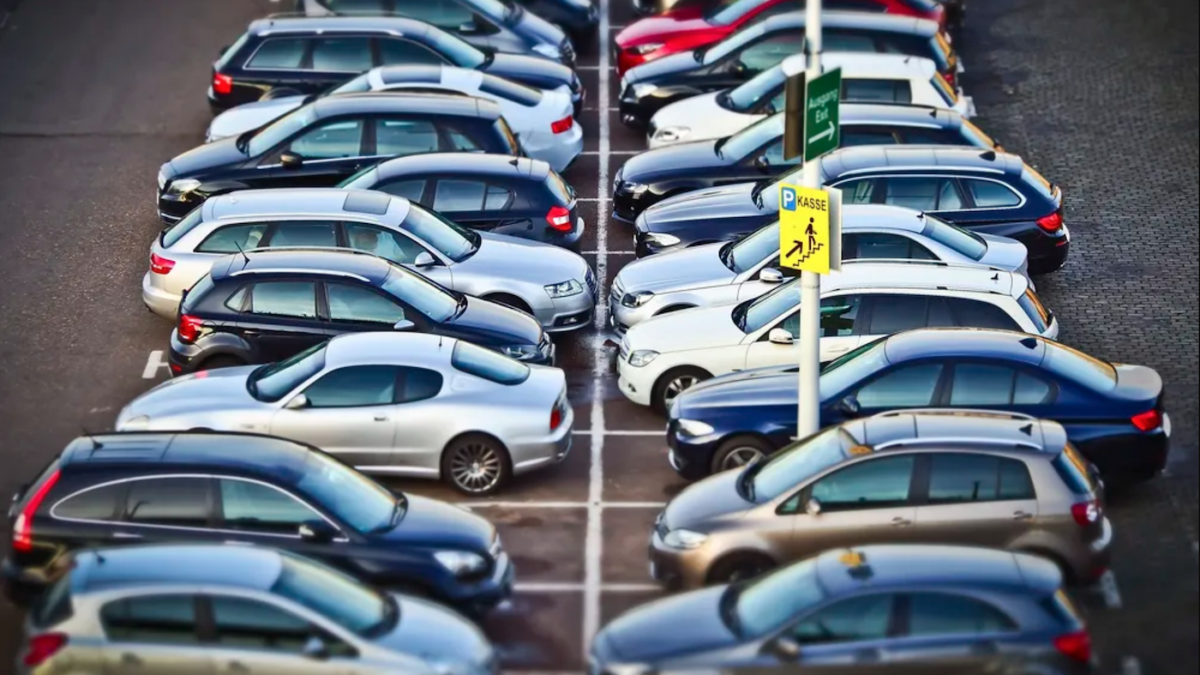About a mile from where I sit typing this ensconced in my comfortable suburban existence is a strip mall. This place serves a number of my family’s basic needs, and I find myself going there quite a bit — there’s a grocery store, a couple of coffee shops, a dry cleaner, an immediate care, a UPS store, an ABC, a sports bar, and a number of fast-casual restaurants. And, of course, this is all connected by a large, sprawling parking lot.
Having traveled to this same establishment hundreds of times over a period of years, I’ve noticed a dramatic change in driver behavior, and one that has made running errands rather trying. I don’t want to overstate the problem, but after years of close study, I have arrived at the conclusion that people who back into parking spaces are history’s greatest monsters.
It would not be unreasonable to assume a couple of thousand cars are coming and going from my neighborhood strip mall on a given day. Given that much traffic, there’s a basic formula for efficiency here: The time it takes to get your car into a space added to the time it takes to pull out of the space.
Now a great many drivers seem to be under the impression that, because being able to pull out of parking space when you’re already facing forward is a little quicker than backing straight out of a space, this somehow makes up for any extra time it took to back into the space. Please go to your local busy parking lot with a stopwatch. I assure you, it does not.
Turning while backing into a space is a perilous process, exacerbated by the relative narrowness of the channels between rows in a given parking lot. That’s because there’s no room for error; one misjudged angle while you’re looking over your shoulder results in a small crunch that could cost you a few thousand dollars, to say nothing of the insurance hassle. Even if you think you’re being relatively quick in backing up, there are powerful incentives to make sure you’re extra careful, i.e. slow, when backing into a parking space.
Now contrast this with the traditional way of pulling into a parking space. Due to the fact that about 99 percent of the turns we make are when we are driving forward, our spatial awareness looking ahead is of course far superior. As for backing out of a space, well, when you start with the car parked already inside the space, you don’t really have to judge any complicated angles. You back straight out, confident there’s already space on either side of the car. You only start to turn when you’re mostly out of the space and the turning radius in relation to the cars on either side of you is wide.
The fact that nosing into spaces and backing out was the norm in parking for basically a century tells you all you need to know. The only reason why large numbers of drivers recently got it into their heads they could back into spaces with regularity is not that they all suddenly became better drivers. It’s that they started installing back-up cameras in every car in the last decade.
But this is a total misunderstanding of what back-up cameras are for. The most obvious reason for back-up cameras is safety, which ironically obviates the one decent argument for backing into a space: You can clearly see what’s ahead of you when pulling out into a busy parking lot. Yes, factory-installed back-up cams in decent cars come with lines overlaid on the screen on the dash that ostensibly give you a good idea of the dimensions of your car relative to the objects in the camera. You just have to line things up like a video game or something and you’re good to go.
Except I’ve now had enough back-up cams to know those lines on your screen aren’t always perfectly calibrated, and it’s real easy to bump the tiny camera on your trunk and get things out of whack. The aftermarket back-up cam in my ’06 Mercury Grand Marquis — I know, it’s a pretty sweet whip, congratulate me later — is just a video feed; it doesn’t give me any indication of where my car is. So while a back-up camera can obviously help you back into a space in a pinch, if you think it’s there because it magically makes you able to quickly back into spaces anytime you feel like it, you’re delusional.
Now, of course, there are exceptions to every rule. I once watched a guy back an F-250 into a space in front of the grocery store like he was spinning three tons on its axis in about five seconds flat. I actually applauded the guy. But however good a driver you fancy yourself to be, you are almost certainly not a grocery store parking lot unicorn. Unless you have good professional reasons to be behind the wheel a lot in difficult circumstances — I’d bet good money the driver of that F-250 had spent years delivering payloads on job sites where the terrain was tricky — you almost certainly don’t have that ability.
In fact, I’d be willing to bet virtually everyone reading this has at some point in recent years complained about being held up in a parking lot by someone backing into a space with all the speed and agility reserved for docking the U.S.S. Nimitz. And worse, some of those people see this happening with regularity but still continue to back into spaces themselves, muttering to the dashboard saint they’ve erected to their own ego, “Thank God, I’m not like those other people.”
But wait, there are two final indignities that bear mentioning. When people back into spaces, they’re also cutting off access to their trunk or back hatch. What if you end up buying something large or walk away from the store having purchased more than you expected? I see this all the time when people are trying to load stuff into the back of a car, where their access is blocked off by a hedgerow or someone else’s bumper. And there’s rarely room to wheel a cart between cars to get it closer to the trunk if you have something heavy. When you pull forward into a space, the trunk is perfectly accessible.
Lastly, even if you were dropped on your head as a child and are somehow unpersuaded by the arguments I’ve made so far, I hope we can all agree that backing into angled parking spaces should be a felony. Somehow this is a real thing people do, despite the fact that backing into an angled space requires making a 48-point turn going backward. And regardless, when you back into an angled space, any attempt to exit that space begins with the car pointed in the opposite direction of the flow of traffic, which is inconsiderate, to put it mildly.
Now at this point, you’re probably wondering — who am I kidding, you were wondering this about 800 words ago — why do you care so much about this? What’s it to you if you have to spend a couple of extra minutes running errands because some soccer mom has gotten it in her head that throwing the minivan in reverse is an adventure for the whole family?
Well, it’s not that simple. With thousands of cars coming and going from a single lot, there’s almost no delay or hold-up for other cars that doesn’t have much wider ramifications, triggering chain reactions that screw up the traffic in the entire lot. In fact, the way civil engineers these days try, and usually fail, to understand complex traffic patterns is by applying chaos theory. So the same way that a fantastical chain of events starting with a butterfly flapping its wings in the Congo leads to the stock market falling 500 points half a world away, every extra 30 seconds wasted in a parking lot is compounding existing problems and making overall traffic worse in ways we can scarcely imagine.
And yet, the people backing into spaces are so selfish they haven’t even tried to imagine the levels upon levels of “just because you could doesn’t mean you should” that we decent citizens are dealing with every day on the mean streets of our local strip mall. If you’re still backing into spaces, just cut it out and pull straight into the space the way basic geometry demands.









